The Saturday Read: #61
Inside: The great water con, a PM's spirit, Trump's VP, Gen Z, South Africa, and Mehdi.
Good morning. Welcome to the Saturday Read, the New Statesman’s guide to politics, culture, books, and ideas. This is Harry, along with Jason, Pippa, George, and Finn.
Last week, 1,143 of you let us know your views on who the West should fund in foreign conflicts: 78 per cent expressed support for Ukraine, 20 per cent for Israel, and 18 per cent for Taiwan. Only 14 per cent didn’t want the West to fund anyone. I was surprised that as many as one in five of you backed Israel, and only one in seven opposed all arms funding. Let us know your views in the comments section if you like.
Jason has reflected on the new media players midway through today’s email, alongside an interview I’ve done with Mehdi Hasan, formerly of this parish. I couldn’t fit in Mehdi’s views on Keir Starmer (“Blair without the good bits”), so here they are:
“Blair came in with a very modest agenda, but public services improved, NHS spending went up, the minimum wage was brought in, we had devolution. I don’t see even 10 per cent of that. I cannot believe we’ve regressed back to George Osborne. Of course we should be borrowing. The economy is not a credit card. More austerity is ridiculous, austerity has destroyed Britain. I used to go back to Britain and people asked when are you coming back? Nobody says that to me now.”
Yet Mehdi stills refers to Britain as “we”. This week Starmer launched his new modest pledge card, in imitation of Blair’s pledges 27 years ago. Freddie reacted to them here.
1—“England and Wales are the only countries to have fully privatised their water industry.”
Last year, Britain’s water companies spent 3.6 million hours dumping raw sewage into rivers. Thames Water, which serves 16 million people, is close to collapse, having amassed debts of £16bn. For this week’s cover story, Will Dunn carried out a characteristically forensic investigation into how privatisation and profits polluted Britain’s waterways, and spoke to the local sleuths fighting back. PB
The political implications of the new Great Stink are about to become even more significant, however, because the finances of Britain’s privatised water industry, which has taken on debts of more than £60bn since it was privatised in 1989, are if anything more putrid than the rivers it pollutes. The largest of Britain’s water companies (the same company that is spilling sewage into Colwell Brook) is Thames Water, which supplies water and sewage services to 16 million people. It may be about to collapse.
Aperson with inside knowledge of Thames Water, who asked not to be identified, told me about the wide spread frustration within the company at failing equipment and a lack of money to fix problems that have been growing for years. They also said there is a sense among those working for Thames Water today that they are paying the price for the past, specifically the years 2006 to 2017, when the firm was owned by the Australian investment manager Macquarie. It loaded Thames Water with billions in debt while paying very large dividends. In that time, debt rose from £3.4bn to £10.8bn.
2—“Jenkins was relentless.”
The tenure of our next prime minister’s favourite prime minister is most striking for its supernova of liberalisation. Harold Wilson decriminalised homosexuality, legalised abortion, outlawed capital punishment, eased divorce, banned flogging in prisons and abolished theatre censorship. But Wilson himself was tentative. Simon Jenkins illuminates the shadowy figure who led this charge, one Roy Jenkins. GM
When Jenkins arrived at his new post he found his office grimly decorated with a picture of Charles I and the names of prisoners previously awaiting execution. As he outlined his reform agenda, his austere permanent secretary, Charles Cunningham, flatly objected and did everything to obstruct him. At one point he even broke down in tears. Jenkins pushed him into retirement and brought in a new permanent secretary, Philip Allen, from the Treasury. He restaffed his private office from outside the department under his personal aide, John Harris. Allen recalled his own first instruction, “There was work to be done, and to be done at once.” There ensued one of the most sensational bursts of social reform in British history.
3—“He will surely require that you violate basic principles of American democracy.”
Jill Filipovic assesses the competitors in the race to be Donald Trump’s running mate. She finds conspiracy theorists, “an admitted puppy killer”, and a long list of “unabashed toadies”. This is fitting: who else would debase themselves so thoroughly, to end up with what might be the worst job in America? It’s easy to mock, but whomever Trump does pick may also end up a beat away from the presidency. FM
Some degree of deep masochism seems to be at play – why else beg for a role that guarantees degradation and abuse? But the potential to grab more power, fuelled by stunning narcissism and grandiosity, seems like the real draw. Each vice-presidential contender must actively delude themselves that they will be the special person, unique in Trump’s history, who gets close to the man and isn’t eventually betrayed, belittled, or blamed for his misdeeds, potentially in a court of law. But to imagine that one might be so special is to fundamentally misunderstand the Big Boss.
4—“When women have mobilised, men reacted in backlash.”
Around the world a political gap is widening between Gen-Z men and women, with men becoming more conservative and women more liberal. What does this mean for business, friendship, even love? I met Alice Evans, who is travelling the world researching her forthcoming book, to talk about why the situation is particularly acute in South Korea, the “honour-income trade-off”, and living in a hut in Zambia. PB
The factor that unites South Korea, the US, the UK and other countries in which there is a growing gender gap is competition for what Evans calls “necessarily finite status goods” such as a prestigious education or committed partner. In the US, an Ivy League degree and a successful romantic relationship bestow status upon men. But the average Ivy League admittance rate is just over 7 per cent, a higher percentage of US men than women are unpartnered, and less financially successful men are more likely to be single. Evans believes men are particularly affected because they “fundamentally care about status”. If they perceive scarcity – of finance or opportunity – resentment and hostile sexism can grow.
5—“I watched Hitchens for years.”
Mehdi Hasan – who has tweeted 167,300 times since April 2010, or 33 times a day for 14 years, in a tone that tends towards righteous and accusatory – is more agreeable in person than you might expect. His combativeness is more puckish than caustic. We met recently in DC, his home since 2015, to walk the Mall and argue for an hour. HL
This is the key to Hasan’s appeal: the way he will easily unfurl – on air, on stage, walking down the Mall – clauses full of conviction, without hesitation. Fluency, persistence and a platform can bring great rewards online, if you have the right politics. The viral internet rewards two types: progressives and their opponents. Scepticism towards all offers nothing like the same audience as being a member of a camp. Hasan is in one of them, although he was reluctant to see himself that way. “My side? I don’t have a side,” he said to me, days before he would be the subject of an adulatory 6,000-word profile in New York Magazine.
While in Washington DC last week, I had lunch with my old friend (and former New Statesman colleague) Mehdi Hasan. As Harry says, Hasan, who was born and educated in England, is renowned in the US for his forensic TV interviews: half left-wing shock jock and half peak Paxman-style grand interrogator. He delights in delivering fast-paced, fact-heavy monologues, scabrous and sarcastic, straight to camera.
Is his personality-led, intensely partisan start-up Zeteo, launched via Substack, the future of media? In his essay this week, Wolfgang Münchau, our European politics columnist, and a former co-editor of Financial Times Deutschland, argues that it could well be. “Traditional media organisations are still better resourced, but in decline,” he says, unremarkably, but then explains what he means exactly by decline. For him, decline also means irrelevance and elites being locked in their own echo chambers.
The war in Gaza and the outrage that it has inspired, especially among students, shows how disconnected young people are from the mainstream or traditional media. They do not read newspapers or watch mainstream news programmes – such as BBC Two’s ailing Newsnight or BBC One’s News at Ten. A new media sphere has opened up, Münchau says, that governments “are hardly equipped to understand, let alone control”. He believes that commentators in the traditional media are now merely “talking to ourselves”.
I like what he says, but I’m not quite sure he is right. Not all legacy-media brands are in decline, however one chooses to define “decline”. The New York Times – though it is internally riven and often editorially confused – is thriving because of its willingness to embrace new digital innovations: video and podcasts, newsletters, flexible paywall technology, and so on. And editorial gatekeepers – sub-editors, fact-checkers – surely matter even more in an age of disinformation. They are the quiet heroes of journalism.
I welcome the arrival of Hasan’s start-up and others like it, such as Bari Weiss’s The Free Press. The hedge fund tycoon Paul Marshall’s UnHerd, a post-liberal outfit, is a welcome addition to the media universe in the UK, although here at the New Statesman we publish some of the same writers. What I like about UnHerd is its intellectual ambition. And it is nimble. More than a website, UnHerd is now also a video company, a restaurant, a club and an events space. The very definition of a modern media start-up.
The legacy media groups were hegemonic for too long. Dominance breeds complacency. The new media entrepreneurs are seldom complacent, and they are on a war footing. They are intent on disruption and, above all else, on being heard. Here we are now – we will entertain and provoke you!
In his final interview, conducted by Richard Dawkins and published in the New Statesman in December 2011 (that year we also published guest-edited issues of great impact by Rowan Williams, then the archbishop of Canterbury, and Jemima Khan), Christopher Hitchens said: “Never be afraid of stridency.”
But one can tire of stridency and the rat-a-tat relentlessness of moral absolutism. When there is so much noise, there is something to be said for tonal variety and different, quieter registers – for nuance, restraint, scepticism, and expressions of doubt.
6—“And I must admit, it is very… red.”
Kara Kennedy defends the new official portrait of King Charles III, unveiled this week. Artist Jonathan Yeo has taken an unexpected approach – it is abstract, lurid, psychedelic. More MoMA than royal residence. And so the painting has been subject to no shortage of criticism. But the detractors, Kara contends, simply don’t get it. FM
This is undoubtedly a painting of its time. It will make a smaller mark on monarchical art history than, say, the Tudor-era portraitist Hans Holbein’s proud, masculine depiction of Henry VIII. But it shows a different sort of monarch: one with the military gear and shiny sword, yes. But one who also liked nature, the pre-Socratics, and who had a kind face. No matter the bravado of Holbein. This portrait will remind future generations of the King's weirdness.
7—“John Kaag has a knack of stumbling upon treasures.”
In the early, insomniac hours of a November morning, while unpacking boxes at his new house on Tophet Swamp, John Kaag discovered “a stack of yellowing paper, an inch thick, bound with a rubber band”: the self-published history of the Blood family, into whose ancestral home he had moved.
John Banville reviews the resulting book, American Bloods, in which Kaag tells their sprawling, fantastical story, from the Battle of Concord that began the American Revolution to the theft of the British crown jewels. PB
The house in which Kaag and his family live was built in 1745 by one Josiah Blood and his wife, Sarah, and of a night its “warm lights”, Kaag tells us, “peek comfortingly through Tophet Swamp”. Local folk would surely need all the comfort and light to be had, for Tophet was the biblical site where the Canaanites burned their children alive as offerings to the god Moloch. One can see what was on the minds of those fearsome Puritans who first settled on the Eastern Seaboard of the North American continent; their God was no softie, either.
8—“Robert F Kennedy Junior has sought ideological allies in strange places.”
I return, once again, to the off-putting machinations of Russell Brand. After the series of rape, sexual assault and emotional abuse allegations emerged against Brand last year (he denies them all) it seems the once-vaunted, now-disgraced comedian has found new friends.
On Wednesday night Brand joined RFK Jr. – who is running as a third party candidate in the presidential election – at a campaign event in Nashville. This unholy alliance throws RFK Jr.’s questionable judgement into greater doubt. FM
There is no obvious political home for someone of Brand’s ilk in Britain. The Tories are too priggish and staid (they might have forced him to wear a tie), and have none of the conspiratorial zeal of the new American right. And to someone of Brand’s disposition the liberal normies are just as bad: another wing of the establishment pulling the strings of the country to line their pockets. Maybe Brand and the endlessly contradictory RFK Jr are not such unusual allies.
9—“The Conservatives are in an unprecedented struggle for survival.”
Geoffrey Wheatcroft announced the death of conservatism in a memorable book published in 2005. He has done so again. Colin Kidd has reviewed his work for us. GM
The party of a pragmatically unideological ruling elite, Wheatcroft argues, has become in recent decades shrill and fanatical, as well as rowdy and undisciplined. In some measure, this is a by-product of the party’s belated democratisation. Clearly, a patrician snobbery prevailed as late as 1963, when Macmillan decided to step down as prime minister after suffering prostate problems. At this point, he and the party’s compliant grandees passed over for the succession every single Tory MP in the House of Commons.
Instead, the new prime minister and Conservative leader was the 14th Earl of Home, who had to disclaim his peerage and find a constituency. Realising this reversion to aristocratic leadership was not a good look, the party contrived from 1965 to fashion a more classless image with a sequence of leaders from relatively modest backgrounds: Heath, Thatcher, Major. But did meritocracy come at a cost?
10—“The country is set to hold the most important ballot since the end of Apartheid.”
Benjamin Fogel delivers a sobering analysis of South African politics, while Samantha Ege and Leah Broad have written in the magazine on the music apartheid shaped. GM
The coalition governments that have governed many of the country’s largest cities over the last five years or so, such as Johannesburg and Durban, have proved largely calamitous because coalitions have tended to focus on dividing the spoils at the expense of governance. The result has been the collapse of basic services in these places.
In 2018, Ramaphosa, a trade-unionist-turned-billionaire, came to power promising national renewal after the “nine wasted years” of his predecessor Jacob Zuma. The ANC, Ramaphosa promised, would remove “the bad apple” and get its house in order to deliver a better future for all. Six years later, the best that can be said about his tenure is that things could have been worse. Systemic corruption, state incapacity and dismal economic performance have endured, and in some cases worsened.
11—“Soon, the grubby masses made even more audacious demands.”
Sohrab Amari goes subterranean, and dredges up a new culture of young people drawn to racial, eugenic, and IQ-obsessed ideologies: as he puts it, ‘Dime Store Nietzcheans’. Who saw internet-based ‘natural aristocrats’ coming? This piece is one of those ones you just have to read. GM
According to the mythos promoted by people like L0m3z, the aristocratic or adventurous spirit, once free to roam and to designate value on his own, has tragically been imprisoned in the communal “longhouse”, lorded over by the primordial feminine, with its obsession with equality. When exactly this tragedy took place depends on who you ask: for some members of the online right, it was some 12,000 years ago with the advent of the agricultural civilisation and the shift from a “barbarian” mode of life into sedentary farming. For others, the tragedy occurred much more recently, with the passage of the 1964 Civil Rights Act.
George’s Best of the Rest
Reuters: Israeli tanks push into Rafah.
Guardian: Putin and Xi strengthen alliance.
Bloomberg: First Neuralink patient: ‘It blows my mind’. I wouldn’t have phrased it quite like that.
BBC: Birth trauma report calls for new maternity tsar. Read Hannah Barnes.
Matthew Gasda: The internet infection. Who is doing Honor Levy’s PR?
Paul Dalla Rosa: You are the product (again).
Tom Shone: Did success ruin Tarantino? Or does every artist simply have their time?
Iris Moon: On English Melancholy.
Man who looks like Rishi Sunak suffers egging. And you thought you were desperate for a general election!
Woman who saved angry dog warned it’s a fox but it might be a coyote.
If today’s pieces intrigued, you can subscribe to the New Statesman below. Stay up to date with everything from news and analysis to comment, criticism and essays.
Whether you’re looking for a sharp blog or a finely written feature, the New Statesman has you covered. Have a good week, and catch you next Saturday.









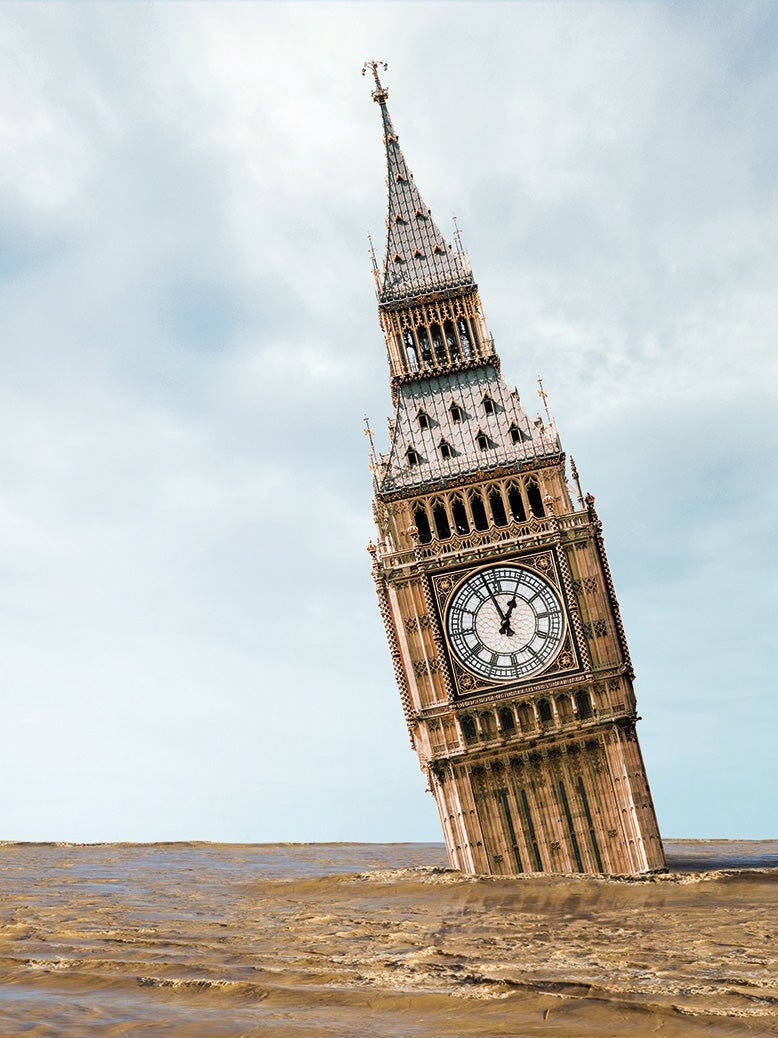



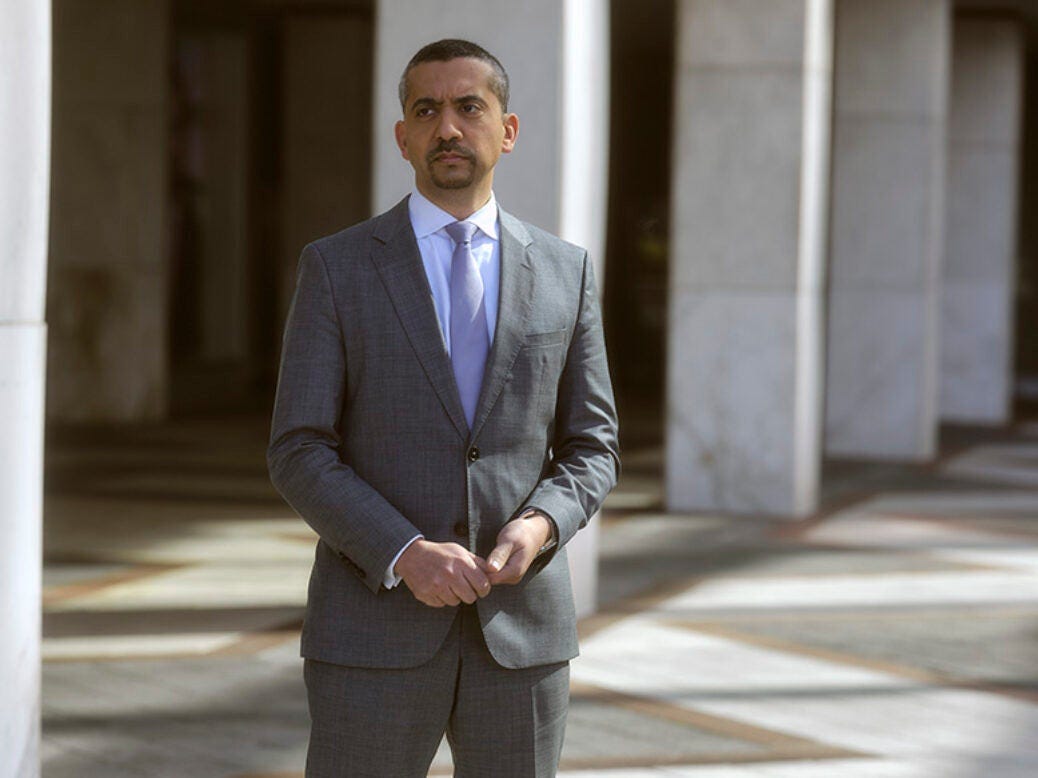

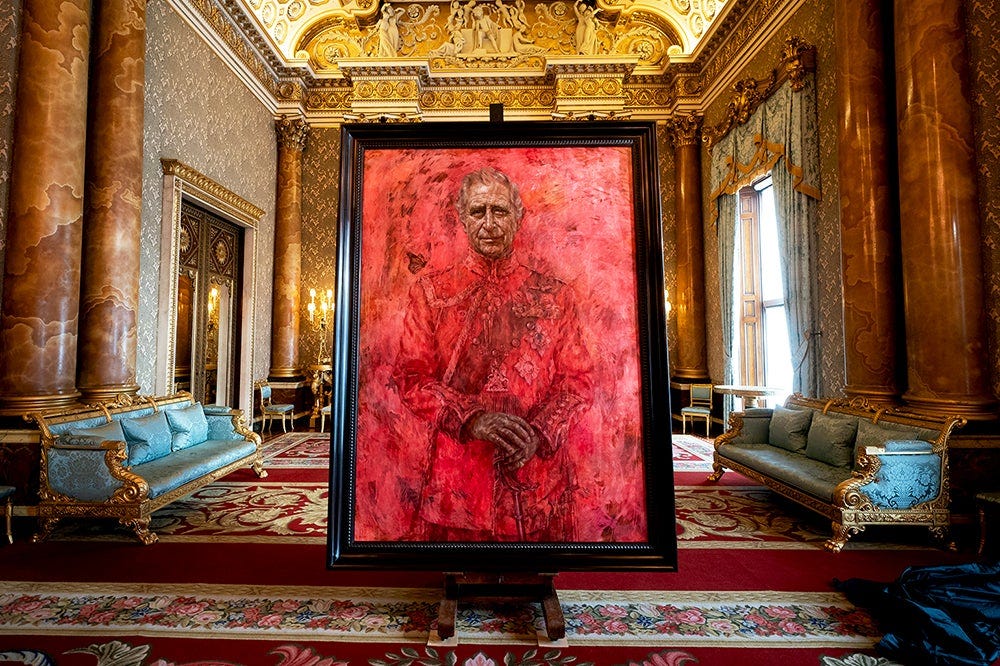
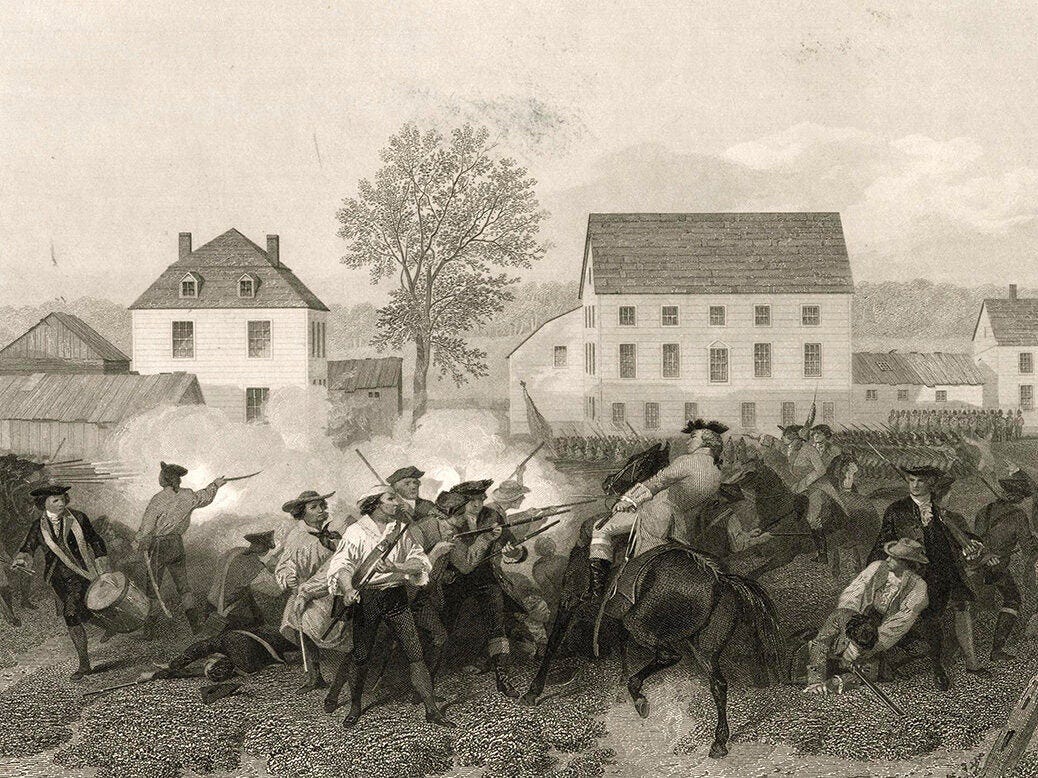



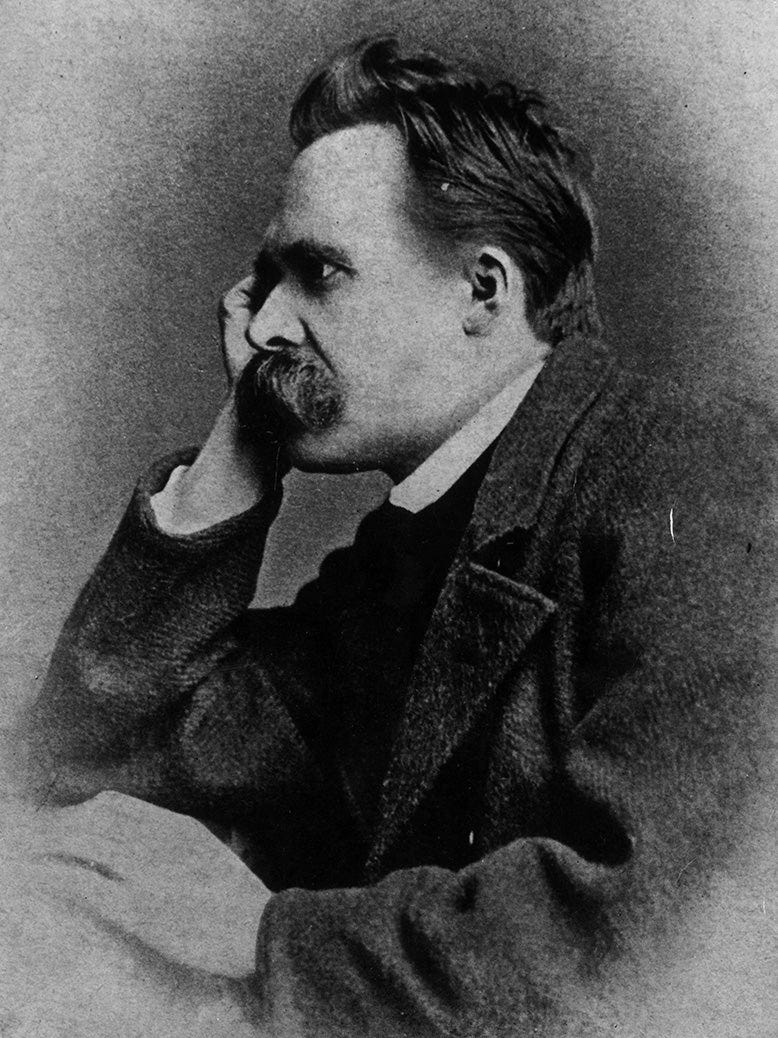
"I was surprised that as many as one in five of you backed Israel, and only one in seven opposed all arms funding." Quoting you. Why are you surprised? Do you not like Jews or what other reason do you have for wishing to see even lower support for Israel? Shame on you.
I read that article about Roy Jenkins in the Guardian and it was ludicrously one sided. Yes Jenkins was a great reforming Home Secretary but the article's claim that he did it all virtually single handed is just plain wrong.
For example,capital punishment. There had been a growing movement throughout the fifties for its abolition within Labour. The Bill for its abolition was piloted through parliament by Sidney Silverman not Roy Jenkins.
The decriminalisation of homosexuality was advocated in the Wolfenden report in the fifties which Labour wanted implemented but the Tory government was too cowardly to implement so was not a new policy.
The abortion law reform was brought forward by David Steele in a private member's Bill and only became law because Harold Wilson,not Jenkins, guaranteed it the time to get through parliament.
In short it was a collective effort by a brave government and its MPs. Would that such bravery existed today or even 10% of it.